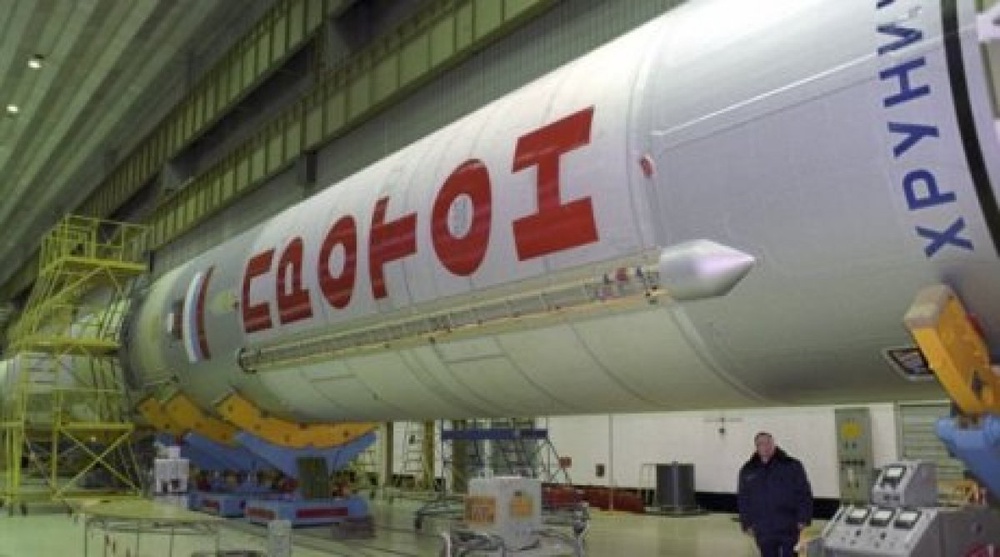
Assembly of Proton-M carrier rocket has started in the integration and test block of platform 92A of Baikonur cosmodrome rented from Kazakhstan by Russia. Proton-M rocket carrier together with Briz-M booster will take American Sirius FM-6 satellite radio into the orbit, Interfax-Kazakhstan reports. Earlier all works on Proton-M rockets were suspended because of the rocket crush at Baikonur on July 2. “Resuming the works with Proton-M carrier rockets at Baikonur testifies that the investigation has identified the systems that caused the accident and checking or replacement of these systems is possible without sending the rockets back to Khrunicev Center’s plant in Moscow,” a source at Baikonur told Interfax-Kazakhstan. The schedule of Protons launches has not been made yet. Most probably, the launches will be resumed not earlier than in fall. The launch manifest of the Khrunichev Center before the accident included launches of satellites like Astra 2E (commercial European satellite), Sirius FM-6 (commercial American satellite), Raduga-1m (Russian military communications satellite), Express-AM5 (Russian communications satellite) and Inmarsat 5 F1 (commercial American satellite). The new schedule is yet to be made and there is a possibility that the foreign clients will not want their satellite to be the first one launched after the accident. In such case Russian satellite Raduka-1M may be the first to be launched, the source said. Proton-M carrier rocket that was launched on July 2 was supposed to take three Glonass-M navigation satellites to the orbit. The rocket crashed and exploded not far from the launch pad inside Baikonur within minutes after the lift off. The accident was caused by human factor: sensors were improperly connected during the rocket's assembly. Deputy head of RosKosmos (Russian Space Agency) Aleksander Lopatin initially said that resuming the launches of Proton-M carrier rockets would be possible after the emergency commission finishes its works. The crash of the rocket running on extremely hazardous heptyl fuel caused a rise of social protests in Kazakhstan. “A big accident happened today. 500 tons of heptyl polluted the air and water. Baikonur citizens were told to stay home and keep their windows shut. We believe that a big damage was caused to our country and its citizens and Russia has to compensate it. No Russian rockets should be launched from Baikonur until Russia does that,” political expert Aidos Sarym told the journalists when a groups of Kazakhstan activists assembled near the Russian embassy.





Assembly of Proton-M carrier rocket has started in the integration and test block of platform 92A of Baikonur cosmodrome rented from Kazakhstan by Russia. Proton-M rocket carrier together with Briz-M booster will take American Sirius FM-6 satellite radio into the orbit, Interfax-Kazakhstan reports.
Earlier all works on Proton-M rockets were suspended because of the rocket crush at Baikonur on July 2. “Resuming the works with Proton-M carrier rockets at Baikonur testifies that the investigation has identified the systems that caused the accident and checking or replacement of these systems is possible without sending the rockets back to Khrunicev Center’s plant in Moscow,” a source at Baikonur told Interfax-Kazakhstan.
The schedule of Protons launches has not been made yet. Most probably, the launches will be resumed not earlier than in fall. The launch manifest of the Khrunichev Center before the accident included launches of satellites like Astra 2E (commercial European satellite), Sirius FM-6 (commercial American satellite), Raduga-1m (Russian military communications satellite), Express-AM5 (Russian communications satellite) and Inmarsat 5 F1 (commercial American satellite).
The new schedule is yet to be made and there is a possibility that the foreign clients will not want their satellite to be the first one launched after the accident. In such case Russian satellite Raduka-1M may be the first to be launched, the source said.
Proton-M carrier rocket that was launched on July 2 was supposed to take three Glonass-M navigation satellites to the orbit. The rocket crashed and exploded not far from the launch pad inside Baikonur within minutes after the lift off. The accident was caused by human factor: sensors were improperly connected during the rocket's assembly.
Deputy head of RosKosmos (Russian Space Agency) Aleksander Lopatin initially said that resuming the launches of Proton-M carrier rockets would be possible after the emergency commission finishes its works.
The crash of the rocket running on extremely hazardous heptyl fuel caused a rise of social protests in Kazakhstan.
“A big accident happened today. 500 tons of heptyl polluted the air and water. Baikonur citizens were told to stay home and keep their windows shut. We believe that a big damage was caused to our country and its citizens and Russia has to compensate it. No Russian rockets should be launched from Baikonur until Russia does that,” political expert Aidos Sarym told the journalists when a groups of Kazakhstan activists assembled near the Russian embassy.

 +7 (777) 001 44 99
+7 (777) 001 44 99















































